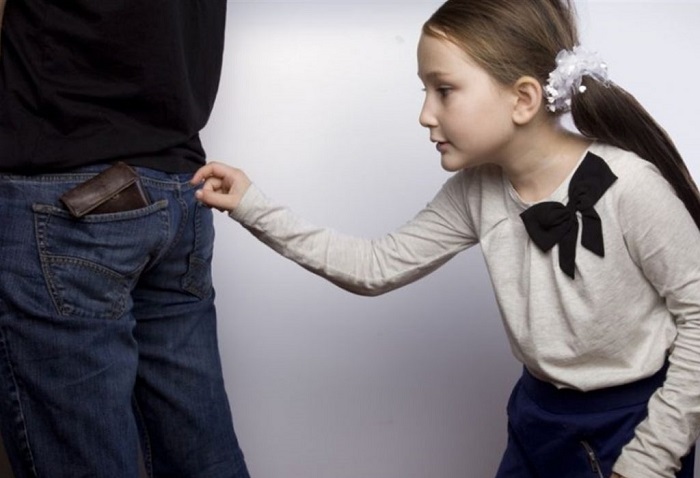Even though stealing and lying are clearly wrong, our response primarily depends on the child’s age and developmental level (since they don’t always match, such as for kids with developmental delays).
Why a Child Steals
1. Child can’t Control himself
Younger children have difficulty with self-control. A child may take something although he knows that stealing is wrong simply because he can’t help himself. You have to give your child the ability to get what he wants in an honest way. Also, you must try to minimize the temptation.
2. Child needs to have Control over his Life
Children are acutely aware of their vulnerability. They lack control over their lives. Some children have difficulty with this. If the child has trouble feeling dependant, he may steal to gain a sense of control or to rebel.
3. Child’s basic needs are not being met
Children are completely dependent on their parents for all of their needs. A child who feels that his needs are not being met will eventually take the matter into his own hands. The easiest way for a child to do this is to take what he needs. What a person needs is subjective. Even though a parent may not feel that a child should have something, it might be a real need for the child. For example, if the child’s school friends have pocket money, then your child could have a need for pocket money. He will feel a lack if he doesn’t have it, even if you provide him with everything that he wants. This type of child may be tempted to steal money just so he has money like everybody else.
4. Mental Health
Underlying behavior disorders or mental health problems can also contribute to behavior problems like stealing. A child who struggles to deal with his parents’ divorce may begin acting out. A child who is struggling with depression may use stealing as a way to cope.
How you can handle if your child steals from you
- Child’s age is important
Always keep in mind the child’s age before reacting or taking any step. Children below four or five years are incapable of differentiating between right and wrong, understanding the concept of ownership, or purchase and sale. Children between six and 13 years can grasp these concepts, but if they still do it, do not be alarmed. It could be a one-off incident or there could be a reason or motivation for the child to act in this manner. Children above 14 years may have deeper issues or complexes for doing so. While it is important to explain to the child that stealing is wrong and discipline him with a suitable punishment, it is vital to first know the reason.
2. Find out the reason
Very young children can be impulsive and can steal simply because they want something and do not consider it wrong to take it, even if it belongs to someone else. For children below 14 years, the reasons could be peer pressure, less pocket money to buy things they believe are indispensable for them, and inability to ask parents for money. If they are stealing money from parents, they could simply be emotionally insecure and demanding attention from them. They could also suffer from mental health issues, such as low self-esteem, insecurity, and inferiority complex, among others, which may require professional help such as therapy or counselling. If the child repeatedly steals despite warnings and without remorse, you may need psychiatric help for the child.
3. How you should react
The most important thing is not to overreact and fly into a rage or punish the child severely. Do not accuse or confront the child aggressively, especially if you have not caught him in the act. Remain calm, don’t immediately badger the child for explanations, and instead, gently talk to the child about why taking someone else’s property is wrong, how he could hurt the other person and lose a friend. Make sure that he returns the stolen item to the owner and apologises to him, with the promise not to repeat it. If he needs your presence or help with it, give it to him. Importantly, don’t stop trusting him and give him a chance to mend his ways. Continue to love and support him, but make sure you punish him adequately. He can either repay the amount from his monthly allowance or do extra work around the house.
4. Be on the alert
While you should show you continue to trust the child, be on the alert for a repeat incident. If he has stolen from you, do not offer temptation by keeping money in an accessible place. Keep a check on your credit cards and monitor the usage. Increase the child’s pocket money, if needed, and communicate more frequently with him.

